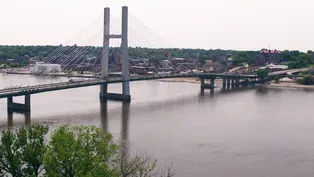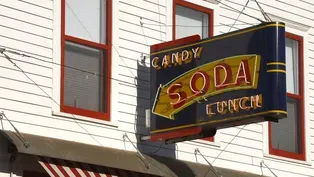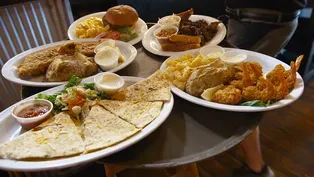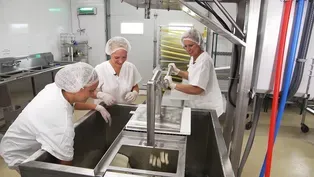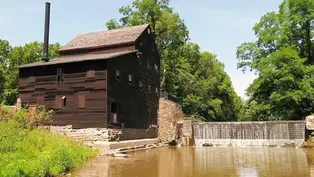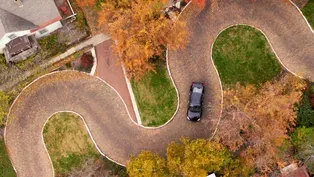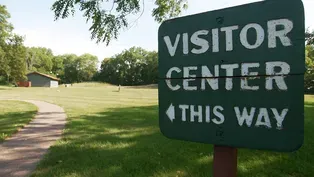
National Pearl Button Museum
Clip: Season 1 Episode 106 | 1m 49sVideo has Closed Captions
Explore the story of how mussel shells put Muscatine on the world map.
Explore the story of how mussel shells put Muscatine on the world map.
Problems with Closed Captions? Closed Captioning Feedback
Problems with Closed Captions? Closed Captioning Feedback
Road Trip Iowa is a local public television program presented by Iowa PBS

National Pearl Button Museum
Clip: Season 1 Episode 106 | 1m 49sVideo has Closed Captions
Explore the story of how mussel shells put Muscatine on the world map.
Problems with Closed Captions? Closed Captioning Feedback
How to Watch Road Trip Iowa
Road Trip Iowa is available to stream on pbs.org and the free PBS App, available on iPhone, Apple TV, Android TV, Android smartphones, Amazon Fire TV, Amazon Fire Tablet, Roku, Samsung Smart TV, and Vizio.
Providing Support for PBS.org
Learn Moreabout PBS online sponsorship♪♪ ♪♪ Kohlsdorf: Throughout history, the Mississippi River has been a resource for industries such as agriculture, transportation and even textiles.
In the late 19th century, buttons, that's right.
buttons for clothing were punched from mussel shells harvested from the river.
They were called pearl buttons, and by 1905, Muscatine, Iowa had become known as the Pearl Button Capital of the world.
Joy: The button industry, in a very real sense, was started by one man, a guy named John Bevel.
He was a German immigrant.
Pearl buttons were not a novelty then.
They were a status symbol.
So he was sent a shell by a family member from the Mississippi River.
And he realized this is exactly what he needed to go into business.
And he moved to kind of a leap of faith.
He moved to the U.S., ultimately settling here in Muscatine, and he started making a few buttons on this machine right over here, actually.
This is his design.
This was in 1891.
By 1905, they're making 1.5 billion buttons here, 14 years later.
Kohlsdorf: Today, the National Pearl Button Museum tells the story of the entrepreneurs, the laborers and the mussels that put Muscatine on the map.
Joy: We have exhibits about all of Muscatine history.
In fact, even to this day, we're kind of the de facto history museum in Muscatine.
You're going to find something interesting.
You will be fascinated by some aspect of this place.
Kohlsdorf: What better way to button up a trip down the Great River Road?
♪♪
Video has Closed Captions
Situated on the bluffs along the river, this town is known for its commerce and culture. (2m 57s)
Video has Closed Captions
The Candy Kitchen in Wilton is one of the oldest ice cream and soda parlors in the state. (3m 17s)
Video has Closed Captions
The Drake restaurant offers a unique dining experience with views that are unmatched. (2m 37s)
Video has Closed Captions
This family farm has quickly gained a reputation for its handmade, farmstead cheese. (6m 38s)
Pine Creek Grist Mill at Wildcat Den State Park
Video has Closed Captions
Built in 1848, this mill is one of the oldest working mills west of the Mississippi River. (2m 37s)
Video has Closed Captions
This drivable path is 200 feet long and is claimed by some to be the crookedest street in the world. (48s)
Toolesboro Mounds National Historic Landmark
Video has Closed Captions
Travel the grounds of these burial mounds that date back to 200 B.C.E. (1m 43s)
Providing Support for PBS.org
Learn Moreabout PBS online sponsorshipSupport for PBS provided by:
Road Trip Iowa is a local public television program presented by Iowa PBS
